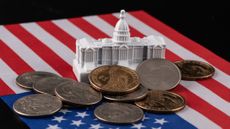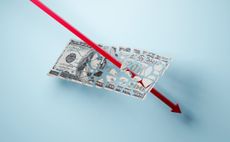US Economy
The latest news, updates and opinions on US Economy from the expert team here at MoneyWeek
Explore US Economy
-

New Federal Reserve chair Kevin Warsh has his work cut out
Opinion Kevin Warsh must make it clear that he, not Trump, is in charge at the Fed. If he doesn't, the US dollar and Treasury bills sell-off will start all over again
By Matthew Lynn Published
Opinion -

How Canada's Mark Carney is taking on Donald Trump
Canada has been in Donald Trump’s crosshairs ever since he took power and, under PM Mark Carney, is seeking strategies to cope and thrive. How’s he doing?
By Simon Wilson Published
-

Should you sell your US stocks?
The turbulent events of 2025 and early 2026 have dealt a blow to the concept of US exceptionalism, but the US stock market is still going strong
By Dan McEvoy Last updated
-

Why does Trump want Greenland?
The US wants to annex Greenland as it increasingly sees the world in terms of 19th-century Great Power politics and wants to secure crucial national interests
By Simon Wilson Published
-

'Investors should brace for Trump’s great inflation'
Opinion Donald Trump's actions against Federal Reserve chair Jerome Powell will likely stoke rising prices. Investors should prepare for the worst, says Matthew Lynn
By Matthew Lynn Published
Opinion -

8 January 1835: US national debt hits $0
By selling land, collecting taxes and cutting public spending, the US national debt was brought down to $0 for the first and only time in the country’s history on this day in 1835
By Ben Judge Last updated
-

The steady rise of stablecoins
Innovations in cryptocurrency have created stablecoins, a new form of money. Trump is an enthusiastic supporter, but its benefits are not yet clear
By Bruce Packard Published
-

Is US stock market exceptionalism over?
US stocks trailed the rest of the world in 2025. Is this a sign that a long-overdue shift is underway?
By Cris Sholto Heaton Published
-

King Copper’s reign will continue – here's why
For all the talk of copper shortage, the metal is actually in surplus globally this year and should be next year, too
By Alex Rankine Published
